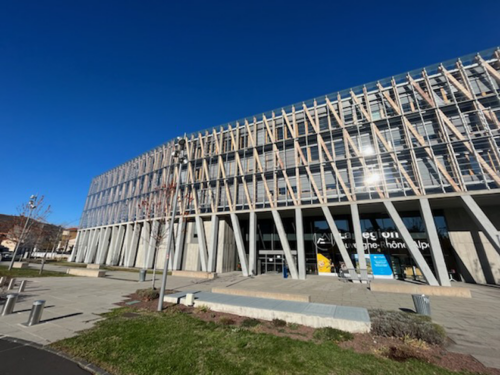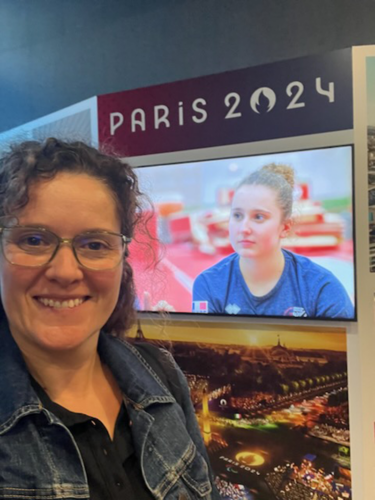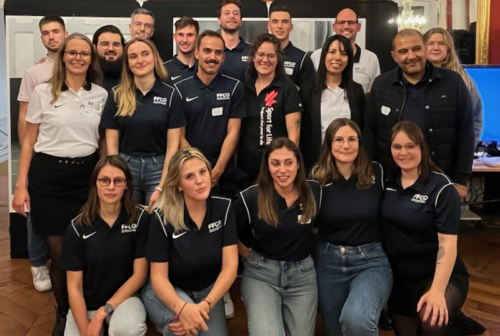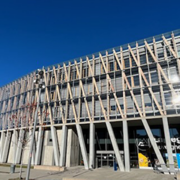Sport for Life goes a long way in France: Physical Literacy and the Long-Term Development Framework with ASM Omnisports
 In today’s global landscape, the significance of physical literacy is gaining traction, spearheaded by dedicated researchers and experts like those who shared their work at the International Physical Literacy Conference in May. These physical literacy champions aim not only to illuminate the significance of physical literacy but also to equip individuals worldwide with the knowledge and resources to promote engagement in lifelong movement.
In today’s global landscape, the significance of physical literacy is gaining traction, spearheaded by dedicated researchers and experts like those who shared their work at the International Physical Literacy Conference in May. These physical literacy champions aim not only to illuminate the significance of physical literacy but also to equip individuals worldwide with the knowledge and resources to promote engagement in lifelong movement.
In recent years, Sport for Life has collaborated with a dedicated team in France to further the growth of physical literacy—a budding concept in the country.
Today, we highlight the work of Freddy Maso, CEO of ASM Omnisports—one of the first people in France interested in physical literacy, its principles and how it can be integrated into his club alongside Sport for Life’s Long-Term Development framework.
Embracing Physical Literacy within ASM Omnisports Programs
Maso’s professional journey began as a university science professor and researcher. Over time, his passion steered him towards working with participants, leading to coaching certifications and his role at ASM Omnisports. Through the years, he has taken on various leadership roles, focusing on holistic growth. This commitment naturally evolved into a strong emphasis on physical literacy development and its seamless integration into Long-Term Development.
“Sport doesn’t follow a pyramid-like structure; it’s a rectangle. People remain engaged in sports and physical activities throughout their lives. Even at 80, they may no longer compete but remain active,” he explained.
 Before Maso’s involvement in the sport sector, France had diverse sport programs. However, these programs lacked cohesion and interconnectedness. To bridge this gap, he introduced a structured, age-based approach inspired by the Long-Term Development framework to share the importance of physical literacy and lifelong movement with parents. He came up with practical qualitative and quantitative solutions to bring more sport and physical activity into the Auvergne region:
Before Maso’s involvement in the sport sector, France had diverse sport programs. However, these programs lacked cohesion and interconnectedness. To bridge this gap, he introduced a structured, age-based approach inspired by the Long-Term Development framework to share the importance of physical literacy and lifelong movement with parents. He came up with practical qualitative and quantitative solutions to bring more sport and physical activity into the Auvergne region:
Qualitative:
- Revision of the scoring system: ASM Omnisports has undertaken a thorough revision of its scoring system. The scoring system is now based more on qualitative criteria, emphasizing the development of fundamental movement skills, creativity and the active engagement of participants.
- Multisport Involvement: The club actively encourages multisport involvement. Participants who were previously focused on a single sport are now encouraged to explore other complementary activities. This promotes the development of varied skills and strengthens individuals’ physical literacy.
Quantitative:
- Expanding the volume of activities: ASM Omnisports has taken concrete steps to increase the volume of physical activities on offer. This includes adding additional time slots to their program, including an hour dedicated to a multisport program after soccer or judo sessions.
- Focus on dexterity, object manipulation and balance: The club has also introduced a specific program aimed at developing dexterity, manipulation and balance skills. Inspired by the circus, this stimulating program offers participants the opportunity to improve their coordination and motor skills.
- Specialized day camps: To maximize accessibility to sports activities despite time constraints during the school year, ASM Omnisports has created specialized day camps. These camps enable young people to discover and experience a variety of enriching physical activities.
- Collaboration with the French Ministry of Education: In September, the French Ministry of Education approved the ASM Omnisports model, which allows children attending school to be released a little earlier to participate in a variety of sports. The program is offered to children aged 10 and over, and focuses on a particular discipline. Over a four-year period, children aged 10 to 14 will try out various disciplines such as climbing, kendo and pétanque, activities generally absent from school programs. They will also take part in other activities such as athletics and soccer. There are plans to further expand the program to include older children.
Innovative Solutions for Coaches and Educators
 Maso’s work didn’t stop there.
Maso’s work didn’t stop there.
Through his work with ASM Omnisports, one specific challenge surfaced in training coaches and educators: little importance was given to the concept of physical literacy. Typically, instructors honed their expertise in specialized domains, neglecting the vital and foundational fundamental movement skills that are so essential to develop. In the education sector, just one in 100 educators were familiar with the concept of “physical literacy”; the term “multisport” resonated more widely across the country.
Additionally, ASM Omnisports is interested in organizing a school exchange program between Quebec and France. The club has also created promotional videos for educators and coaches to reference the significance of physical literacy and multisport involvement.
Maso’s visionary leadership in developing physical literacy has radically transformed the concept in France. By integrating Sport for Life’s Long-Term Development framework into ASM Omnisports’ practices, Maso has started to redefine the landscape of sports and physical activities, and inspire a broader cultural shift towards lifelong engagement. As a result, France is embracing a more inclusive and active approach to movement that promises enduring benefits for individuals and communities alike.
We look forward to seeing how ASM Omnisports’ work progresses!


